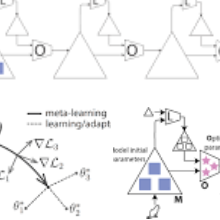The inaccessibility of controlled randomized trials due to inherent constraints in many fields of science has been a fundamental issue in causal inference. In this paper, we focus on distinguishing the cause from effect in the bivariate setting under limited observational data. Based on recent developments in meta learning as well as in causal inference, we introduce a novel generative model that allows distinguishing cause and effect in the small data setting. Using a learnt task variable that contains distributional information of each dataset, we propose an end-to-end algorithm that makes use of similar training datasets at test time. We demonstrate our method on various synthetic as well as real-world data and show that it is able to maintain high accuracy in detecting directions across varying dataset sizes.
翻译:由于许多科学领域固有的限制,无法利用受控随机试验,这是因果关系推断的根本问题。本文着重根据有限的观测数据,区分两变制环境的影响原因。根据元学习和因果推断的最新发展,我们引入了一种新的基因化模型,允许在小型数据设置中区分因果关系。我们利用一个包含每个数据集的分布信息的学习任务变量,提出了在测试时使用类似培训数据集的端对端算法。我们展示了各种合成数据以及真实世界数据的方法,并表明它能够保持高精确度,以探测不同数据集大小的方向。



